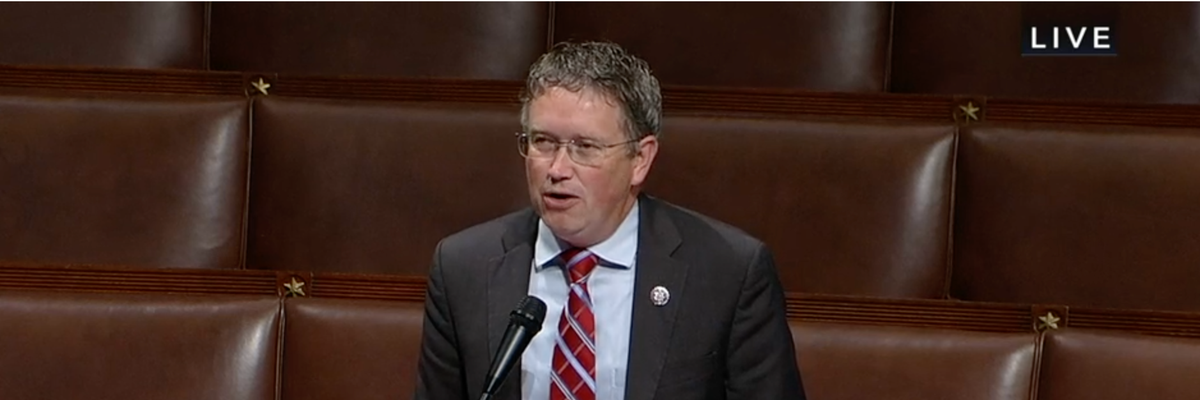A Republican congressman called for Congress to repeal the Iraq War authorization and close the massive U.S. embassy compound in Baghdad on Wednesday.
Both the war authorization and the embassy compound played a role in the near war between the United States and Iran last year.
Rep. Thomas Massie (R–Ky.) called the president’s war powers “disturbingly broad” in a Wednesday morning floor speech as he urged members to repeal the 2002 authorization for the use of military force.
That law, also known as the AUMF, was originally passed to authorize the war to overthrow Iraqi dictator Saddam Hussein, but gives the president general permission to deal with “the continuing threat posed by Iraq.”
“Saddam Hussein's regime was defeated in 2003. 2003, that’s eighteen years ago. (Former President Barack) Obama declared the Iraq War ended in 2011, but the AUMF was never repealed,” Massie said. “It gives a blank check to any current or subsequent administration to keep American soldiers in Iraq indefinitely, and puts us at risk of getting into another war.”
The 2002 AUMF has been used to justify two military operations in recent years. Obama used the law as part of his justification for re-entering Iraq to fight the Islamic State in 2014, and former President Donald Trump cited it last year after ordering the assassination of Iran’s General Qassem Soleimani, who was in Baghdad at the time.
Massie joins a growing chorus of conservative and Republican voices calling for the the 2002 AUMF to be repealed. But the congressman went even further by urging the U.S. State Department to sell its embassy in Baghdad’s Green Zone.
Built at a cost of $750 million during the U.S. occupation of Iraq, the embassy is the largest diplomatic post in the world.
“It’s time to scale down the embassy, put what’s there for sale, and bring our troops and our diplomats home,” Massie said. “We may get only pennies on the dollar for that embassy, but that’s better than sacrificing lives.”
The embassy was at the center of the near U.S.-Iranian war last gear. Amidst escalating clashes between Iraqi militants and U.S. forces in December 2019, a pro-Iranian militia ransacked the U.S. Embassy on New Years’ Eve.
Trump promised to make Iran pay “a very BIG PRICE,” and U.S. forces killed Soleimani two days later. Iran responded by firing dozens of missiles at a U.S. air base in western Iraq, injuring dozens of U.S. troops.
“It’s time for us to leave. We owe it to our soldiers,” Massie said. “They signed up to protect our country. They didn’t sign up to be the world’s policemen.”
















